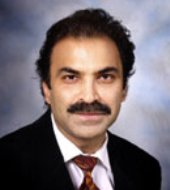Summary
Definition
History and exam
Key diagnostic factors
- dyspnea
- neck vein distension
- S3 gallop
- cardiomegaly
- hepatojugular reflux
- rales
- orthopnea and paroxysmal nocturnal dyspnea
- nocturia
Other diagnostic factors
- tachycardia (heart rate >120 beats per minute)
- chest discomfort
- hepatomegaly
- ankle edema
- night cough
- signs of pleural effusion
- fatigue, muscle weakness, or tiredness
- palpitations, presyncope, or syncope
- lethargy/confusion
Risk factors
- coronary artery disease (CAD)
- myocardial infarction (MI)
- hypertension
- diabetes mellitus
- dyslipidemia
- older age
- male sex
- obesity
- exposure to cardiotoxic agents
- left ventricular dysfunction
- left ventricular hypertrophy
- renal insufficiency
- valvular heart disease
- sleep apnea
- elevated homocysteine
- cocaine use
- family history of HF
- atrial fibrillation
- thyroid disorders
- anemia
- elevated tumor necrosis factor-alfa (TNF-alfa) and interleukin-6 (IL-6)
- elevated C-reactive protein (CRP)
- decreased insulin-like growth factor-1 (IGF-1)
- elevated natriuretic peptides
- dilation of the left ventricle
- increased left ventricular mass
- abnormal left ventricular diastolic filling
- metabolic syndrome or cardiovascular-kidney-metabolic (CKM) syndrome
- low socioeconomic status
- tobacco consumption
- alcohol misuse
- excess sodium intake
- tachycardia
- depression/stress
- microalbuminuria
- aspirin use
- micronutrient deficiency
Diagnostic tests
1st tests to order
- transthoracic echocardiogram
- ECG
- CXR
- B-type natriuretic peptide (BNP)/N-terminal pro-brain natriuretic peptide (NT-pro-BNP) levels
- CBC
- urinalysis
- serum electrolytes (including calcium and magnesium)
- serum creatinine, BUN
- blood glucose
- LFT
- thyroid function tests (especially thyroid-stimulating hormone [TSH])
- blood lipids
Tests to consider
- serum ferritin
- transferrin saturation
- noninvasive stress imaging (cardiovascular MRI, stress echocardiogram, SPECT, PET)
- standard exercise stress testing (bicycle or treadmill)
- coronary angiogram
- cardiac CT angiography
- cardiopulmonary exercise testing with VO₂ max
- 6-minute walking test exercise
- right heart catheterization
- endomyocardial biopsy
- serum HIV enzyme-linked immunosorbent assay
- cardiac MRI
- other biomarkers
- multi-slice computed tomography (MSCT)
Treatment algorithm
symptomatic HF: LVEF ≤40%
symptomatic HF: LVEF 41% to 49%
advanced HF
Contributors
Authors
Syed Wamique Yusuf, FACC, FRCPI

Professor of Medicine
Department of Cardiology
University of Texas MD Anderson Cancer Center
Houston
TX
Disclosures
SWY declares that he has no competing interests.
Acknowledgements
Dr Syed Wamique Yusuf would like to gratefully acknowledge Dr Andrew R.J. Mitchell, Dr Grigorios Giamouzis, Dr Sonjoy Raja Laskar, and Dr Javed Butler, the previous contributors to this topic.
Disclosures
ARJM, GG, SRL, and JB declare that they have no competing interests.
Peer reviewers
David Leaf, MD, MPH
Professor of Medicine
VA Greater Los Angeles Healthcare System
UCLA School of Medicine
Los Angeles
CA
Divulgaciones
DL declares that he has no competing interests.
Brian Griffin, MD
Director
Cardiovascular Training Program
Cleveland Clinic
Cleveland
OH
Divulgaciones
BG declares that he has no competing interests.
Abdallah Al-Mohammad, MD, FRCP(Edin.), FRCP(Lond.)
Consultant Cardiologist and Heart Failure Lead
Sheffield Teaching Hospitals NHS Foundation Trust (Northern General Hospital)
Sheffield
UK
Divulgaciones
AAM has accepted hospitality by NOVARTIS in 2008 to attend the American College of Cardiology meeting in Chicago, and had received honoraria for delivering educational talks before 2008. AAM is the co-author of the NICE chronic heart failure partial update of the guideline in 2010, and of several related articles.
Agradecimiento de los revisores por pares
Los temas de BMJ Best Practice se actualizan de forma continua de acuerdo con los desarrollos en la evidencia y en las guías. Los revisores por pares listados aquí han revisado el contenido al menos una vez durante la historia del tema.
Divulgaciones
Las afiliaciones y divulgaciones de los revisores por pares se refieren al momento de la revisión.
Referencias
Artículos principales
Bozkurt B, Coats AJ, Tsutsui H, et al. Universal definition and classification of heart failure: a report of the Heart Failure Society of America, Heart Failure Association of the European Society of Cardiology, Japanese Heart Failure Society and Writing Committee of the Universal Definition of Heart Failure. J Card Fail. 2021 Apr 1;27(4):387-413.Texto completo Resumen
Groenewegen A, Rutten FH, Mosterd A, et al. Epidemiology of heart failure. Eur J Heart Fail. 2020 Aug;22(8):1342-56.Texto completo Resumen
Heidenreich PA, Bozkurt B, Aguilar D, et al. 2022 AHA/ACC/HFSA guideline for the management of heart failure: a report of the American College of Cardiology/American Heart Association Joint Committee on Clinical Practice Guidelines. Circulation. 2022 May 3;145(18):e895-1032.Texto completo Resumen
McDonagh TA, Metra M, Adamo M, et al; ESC Scientific Document Group. 2021 ESC guidelines for the diagnosis and treatment of acute and chronic heart failure. Eur Heart J. 2021 Sep 21;42(36):3599-726.Texto completo Resumen
McKee PA, Castelli WP, McNamara PM, et al. The natural history of congestive heart failure: the Framingham study. N Engl J Med. 1971 Dec 23;285(26):1441-6. Resumen
National Institute for Health and Care Excellence. Chronic heart failure in adults: diagnosis and management. Sep 2018 [internet publication].Texto completo
McDonagh TA, Metra M, Adamo M, et al. 2023 Focused update of the 2021 ESC guidelines for the diagnosis and treatment of acute and chronic heart failure. Eur Heart J. 2023 Oct 1;44(37):3627-39.Texto completo Resumen
Artículos de referencia
Una lista completa de las fuentes a las que se hace referencia en este tema está disponible para los usuarios con acceso a todo BMJ Best Practice.
Diferenciales
- Aging/physical inactivity
- COPD/pulmonary fibrosis
- Pneumonia
Más DiferencialesGuías de práctica clínica
- ACR appropriateness criteria: suspected and known heart failure
- 2024 ACC expert consensus decision pathway for treatment of heart failure with reduced ejection fraction
Más Guías de práctica clínicaFolletos para el paciente
Heart failure
Heart failure: how can I help myself?
Más Folletos para el pacienteVideos
Third heart sound gallop
Más vídeosInicie sesión o suscríbase para acceder a todo el BMJ Best Practice
El uso de este contenido está sujeto a nuestra cláusula de exención de responsabilidad